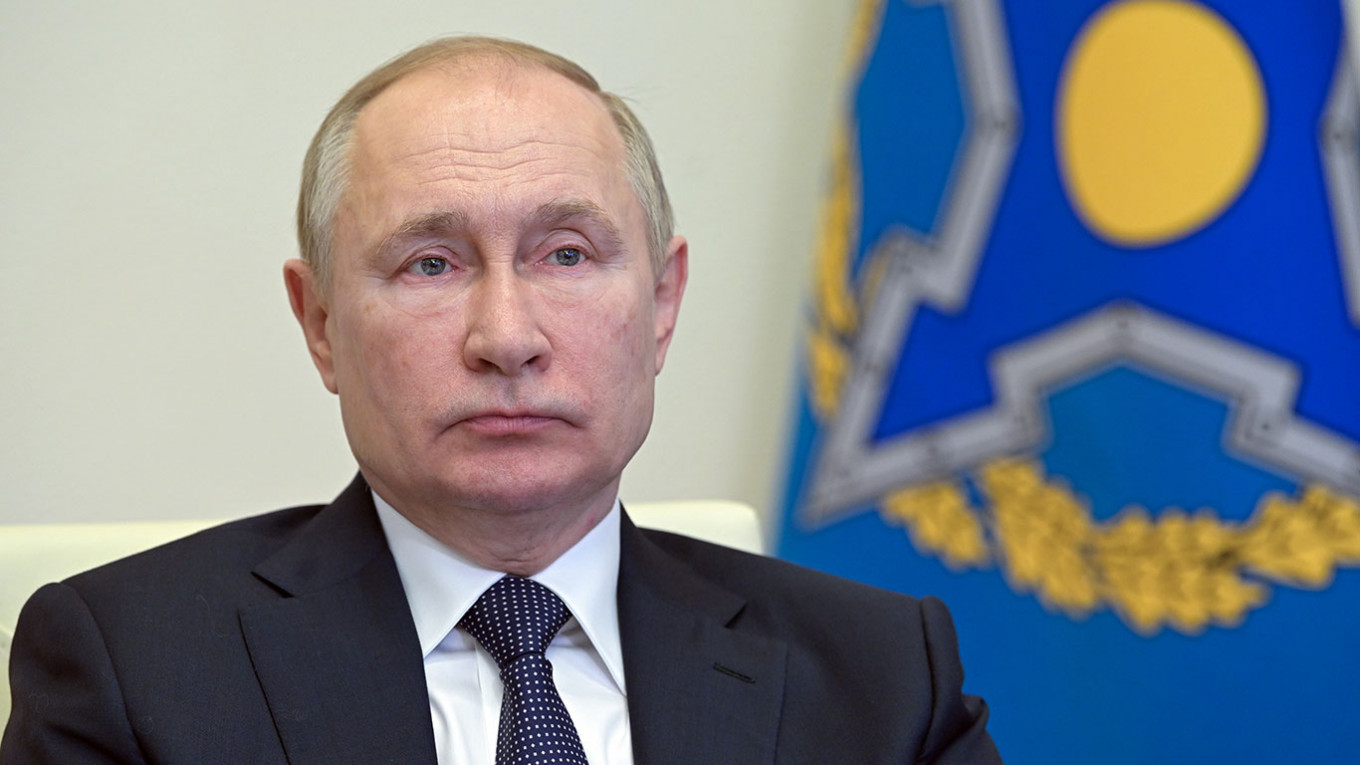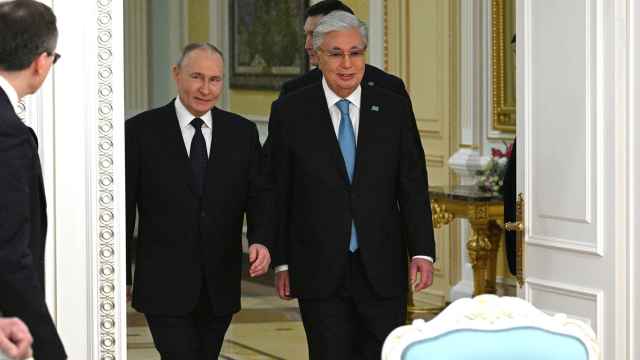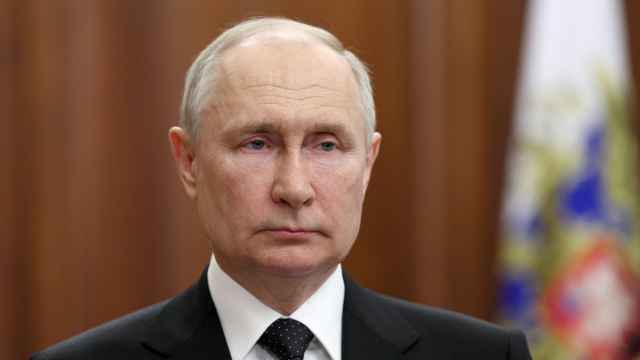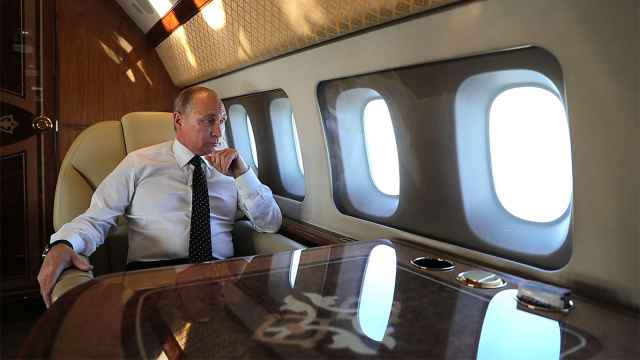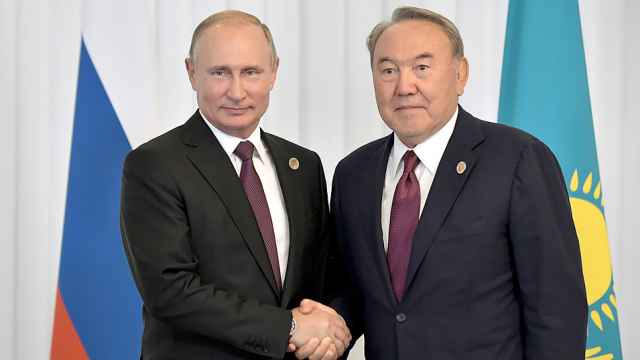A Moscow-led military detachment deployed to Kazakhstan to quell the worst anti-government unrest in the post-Soviet country's history will not allow “color revolutions” to take place, Russian President Vladimir Putin said Monday.
Putin's remarks came days after 2,500 Russian, Belarusian, Armenian, Tajik and Kyrgyz troops were deployed across Kazakh cities to defend key state facilities as part of the Collective Security Treaty Organization (CSTO) alliance.
“We will not allow the realization of so-called color revolution scenarios,” Putin said during Monday's videoconference of CSTO members, according to the state-run RIA Novosti news agency.
He accused unidentified “outside forces” of interfering “in the internal affairs of our states,” echoing the Kazakh authorities’ latest claims of foreign links in the unrest.
“They used well-organized and well-controlled militant groups… including those who had obviously been trained in terrorist camps abroad,” Putin said, calling Kazakhstan the target of “international terrorism.”
Putin also stressed that the CSTO forces would only remain in Kazakhstan for a "limited" time period.
Russian officials and pro-Kremlin media have blamed the West for trying to foment a “color revolution” in Kazakhstan — a similar reprise voiced during popular uprisings in ex-Soviet Georgia, Ukraine and Belarus in recent years.
Speaking at the CSTO summit, Kazakhstan’s President Kassym Jomart-Tokayev called the week of violence “an attempted coup d’etat.”
The Kremlin also criticized the role of social media in fueling the unprecedented protests in Kazakhstan.
“Social networks obviously have both good and harmful elements. The task is to take measures to stop the harmful side,” Kremlin spokesman Dmitry Peskov said Monday. “This is not new, it’s just once again been confirmed by the recent events in Kazakhstan.”
Authorities in Kazakhstan shut down internet access across the country amid the nationwide protests last week, with access still limited in major cities for days after the unrest.
Putin has been a longtime critic of social media’s potential for influencing young people and has recently taken more aggressive steps to limit the kind of content that can be shared online, slapping multimillion dollar fines on the likes of Google and Facebook, for instance, for refusing to remove content linked to Kremlin critic Alexei Navalny.
U.S. President Joe Biden’s administration has dismissed claims that it was behind the unrest.
Oil- and uranium-producing Kazakhstan has been left reeling in the wake of unprecedented unrest that erupted earlier this month in the midst of protests over a fuel price hike in the west of the country.
Dozens have been killed in the unrest and the interior ministry said earlier Monday that nearly 8,000 people had been detained in operations executed by several branches of the security services.
AFP contributed reporting.
A Message from The Moscow Times:
Dear readers,
We are facing unprecedented challenges. Russia's Prosecutor General's Office has designated The Moscow Times as an "undesirable" organization, criminalizing our work and putting our staff at risk of prosecution. This follows our earlier unjust labeling as a "foreign agent."
These actions are direct attempts to silence independent journalism in Russia. The authorities claim our work "discredits the decisions of the Russian leadership." We see things differently: we strive to provide accurate, unbiased reporting on Russia.
We, the journalists of The Moscow Times, refuse to be silenced. But to continue our work, we need your help.
Your support, no matter how small, makes a world of difference. If you can, please support us monthly starting from just $2. It's quick to set up, and every contribution makes a significant impact.
By supporting The Moscow Times, you're defending open, independent journalism in the face of repression. Thank you for standing with us.
Remind me later.


